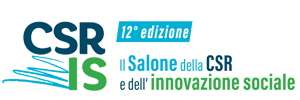Over the past years, several concerns about sustainability – be that social, environmental, and related to governance – have been growing among stakeholders and shareholders; international institutions share this interest and are committed to tackle the negative outcomes of business as usual. The Agenda 2030 promoted by the United Nations, together with the European Green New Deal, stress the importance of changing the way that the supply chain is structured nowadays in order to shift towards a sustainable, green and cooperative kind of doing business, whilst Corporate Social Responsibility (CSR) has become a criterion used to evaluate companies.
This paper is aimed at understanding to what extent companies can be considered sustainable and how the importance gained by CSR influences the way that firms communicate their commitment to ESG and sustainability. Its impact on the improvements undertaken by firms to become greener are highlighted, as well as its structural limits and how the lack of standardization within the reporting
system creates a framework where greenwashing can happen, undermining consumers’ trust.
Sustainability indices and frameworks are investigated in order to find a solution to this governmental gap: the Global Reporting Initiative (GRI), which is to be considered a benchmark for reports, as well as the Dow Jones Sustainability Index (DJSI), the older and broader index ever introduced in order to evaluate and score companies’ performances; the Sustainable Development Goals (SDGs) defined by the United Nations and the Triple Bottom Line as an alternative way of production. These indices
might represent a way to overcome the structural limits of Corporate Social Responsibility as it has been interpreted over the past decades.
Laura Case – Master GESAM – Global Economics and Social Affairs – Università Ca’ Foscari di Venezia

